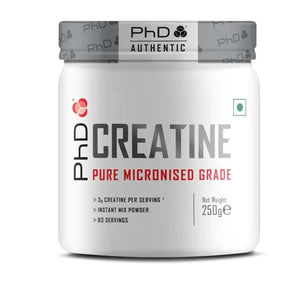It’s your choice - with our knowledge.

Creatine: What it Does, Benefits and Risks
Creatine is one of the most well-studied supplements of all time, and its benefits and risks are well-established. It is generally safe for most people to take, and it has been shown to improve sports performance, strength, and muscle mass. It’s an amino acid that assists the body in muscle building. About half of it comes from our diets, and the other half is produced naturally in our bodies, according to the Cleveland Clinic.
Creatine is a natural substance stored in muscle cells as creatine phosphate. It helps your muscles produce energy during high-intensity exercise. When you exercise, your body breaks down creatine phosphate to release energy. Creatine supplements are popular among athletes because they can help improve performance, strength, and muscle mass by increasing the amount of creatine phosphate stored in your muscles, which allows you to work harder and longer.
Benefits of Creatine for Sports Performance
Creatine has been shown to improve sports performance in a number of ways, including:
- Increasing strength and power
- Improving muscle mass
- Reducing muscle fatigue
- Enhancing recovery
- Improving performance in high-intensity exercise
Creatine is especially beneficial for athletes who participate in sports that require short bursts of intense energy, such as sprinting, weightlifting, and powerlifting. It can also be beneficial for endurance athletes, but the benefits are less pronounced.
Risks of Creatine for Sports Performance
Creatine is generally safe for most people, but there are some potential risks to be aware of. These risks include:
- Stomach upset
- Muscle cramps
- Dehydration
- Weight gain
People with kidney problems or other medical conditions should talk to their doctor before taking creatine supplements.
Overall, creatine is a safe and effective supplement for most athletes. It can help improve performance, strength, and muscle mass. However, it is important to talk to your doctor before taking creatine supplements, especially if you have any health conditions.
We recommend the Science In Sport Creatine, Here are some additional tips for taking creatine safely and effectively:
- Start with a low dose and gradually increase the amount over time.
- Drink plenty of fluids to stay hydrated.
- Take creatine with food to reduce the risk of stomach upset.
- If you experience any negative side effects, stop taking creatine and talk to your doctor.
- Always read and following the instructions on the product labels
It’s your choice - with our knowledge.












































































































